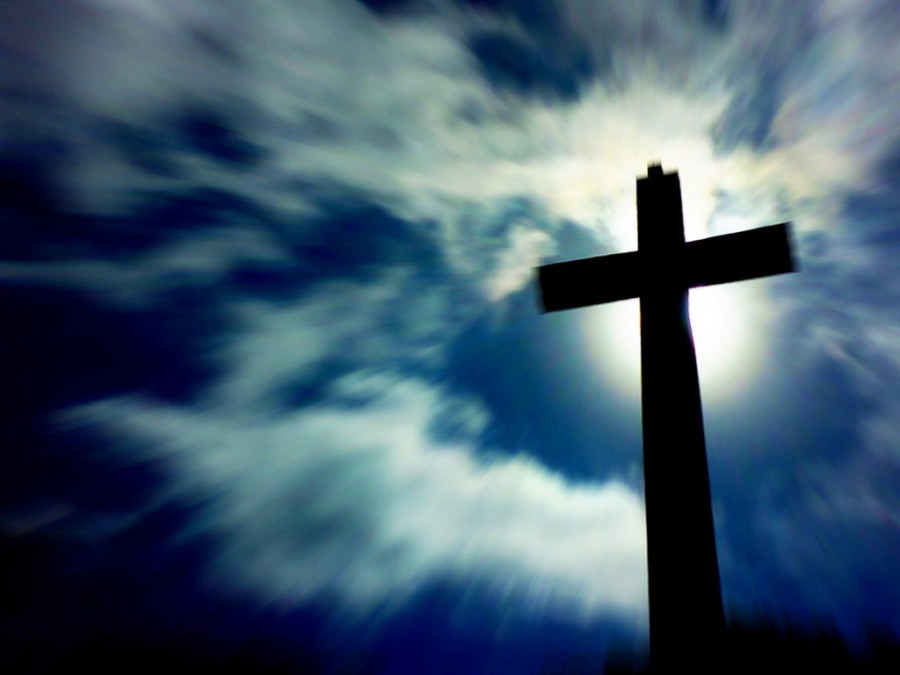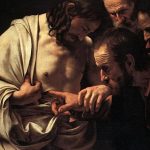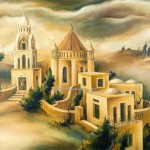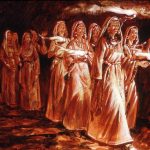
Reflexion for Good Friday
Our meditation on this mystery of the passion and death of the Lord will not take its inspiration directly from the account of the passion, but from the Fourth Suffering Servant Song (Isaiah 52:13-53:12), the first reading of the Liturgy of the Word on Good Friday.
The servant suffers and dies for the sins of the others. The passage then indicates that the servant rises. Of whom is the prophet Isaiah speaking? Of Israel? Of the Messiah? Of himself?…
In this text, it is God who is speaking. God draws everyone’s attention to the suffering servant. God declares that God’s servant will act with wisdom, but that he will suffer, and that his sufferings will end by reducing all the great people of this world to silence. The servant will be disfigured, but ultimately, he will save many people!
Jewish tradition helped me to find some paths for reflection so as to plumb a little the identity of this suffering servant. I find very significant the affirmations in the Zohar (the most important work of Kabbalist literature) that clearly have to do with the Isaiah passage and that shed a little light on the person of the suffering servant in the people of Jesus:
By applying to Jesus what is said about the Suffering Servant in Isaiah, this passage sheds particular light on the passion and death of Christ, which are connected with his whole life, but also on the reaction or responsibility of the human person when faced with this death. For he dies because of my sins, and he dies in order to save me from my sins.
For this Fourth Song describes both the passion, death, burial and glorification of the Servant of God and his birth and life. At the same time, each of us is called forth personally (“we despised him, we held him of no account”); this is not said explicitly in the passion account, and in hearing it, we are often tempted to condemn various persons (Pilate, the young girl who slaps Jesus, Judas who betrays him, Peter who denies him, the other apostles who abandon him) without being very aware of our own limitations, as well as of our betrayals and denials.
The Word of God thus took on the human condition in all its fragility and in all its limitations. He assumed solidarity with human poverty from every point of view except sin. In the same way as he was associated with the crowd of sinners who let themselves be baptized by John the Baptist, he remains in solidarity with the sinful human being even to the grave (“his grave was with the wicked… but he never committed an injustice”). From that moment on, no error, no sin can completely disfigure the image of God in the human person. Whatever his or her situation, whatever his and her errors, the human person merits to be loved and respected in his and her dignity. For in Jesus, God will always be present everywhere where the human being suffers and carries in his and her flesh or heart signs of Christ’s passion. There we must learn to discover Christ present. There, where the traits of a person are not even recognizable in the human being, we must seek to see God’s extraordinary gesture.
1. The servant grew like a sickly plant, rooted in dry ground
This theme of the aridity of the land, of our world and of our hearts might be enough to nourish our Good Friday reflection…
2. Abandoned by everyone… we despised him.
No one can say that he or she is innocent in the face of this suffering servant. Each of us has his and her share of responsibility in the death of this righteous man who did not commit any sin.
To communicate in the saving passion and death of Christ means that we make every human being who is suffering in mind or body our neighbor.
3. It was our sufferings that he bore… we thought he was punished by God.
Perhaps that is the human being’s great sin, that he and she set themselves up as judge of their brothers and sisters in the place of God, or that they attribute their own ideas to God, that they claim privileges for themselves in the name of God…
God’s thoughts are not our thoughts. Our pride and our prejudices can make us blind even to the point of making us lose the right appreciation of persons and of events. This happens when we no longer live under the gaze of God, when we make of God a means to defend our privileges and our interests, when we seek to have God serve us instead of our serving God.
4. Like a lamb that is led to the slaughter… he was arrested, judged and suppressed.
Here we can remember the dramatic account of Christ’s passion, the unjust death of the innocent person. This can make us think about all unjust suffering that is inflicted on individuals and populations. And God seems to remain silent… This silence indicates how serious is the mystery of the incarnation of the Word.
5. “What must we do?”
Here I am thinking of the passage in the Acts of the Apostles, in which those who heard and who were touched by Peter’s discourse asked the apostles: “Brothers, what must we do?”
What must we do, since we also have a share of responsibility in the evil that is committed all around us? What can we do within the limits of our possibilities so as to transform our failures, our sufferings and our trials into springs of salvation for our brothers and sisters?
Our meditation will have attained its goal if each of us makes concrete resolutions to repair the evil that is committed, to be more attentive to the suffering of the other, to transform the arid lands of our heart and of our world into fertile land that welcomes the gift of the Father’s love so as to produce an abundance of the fruit of forgiveness, of hope, of love, and of peace…







